At the University of Minnesota Rural Health Research Center, we have an Expert Work Group (EWG) comprised of national stakeholders that help us identify urgent and emerging issues in rural health and provide feedback on the projects we undertake each year. The goal of the EWG is to provide our center with strategic guidance, input on research questions and project design, connections to rural communities and stakeholders, advice on troubleshooting, feedback on research findings and implications, and support for effective dissemination and policy impact.
Our EWG members are helpful and kind, care about rural communities, and share our passion for equity. Among our staff, collaborators, and EWG members, we value the importance of diverse perspectives across multiple dimensions, including race and ethnicity, age, gender identity and sexual orientation, geography (e.g., Southeast, Plains, Southwest, Mountain West, Midwest, Appalachia, Northeast), and sector (e.g., health care services delivery/administration, policy , clinical care, community, etc.).
EWG Members
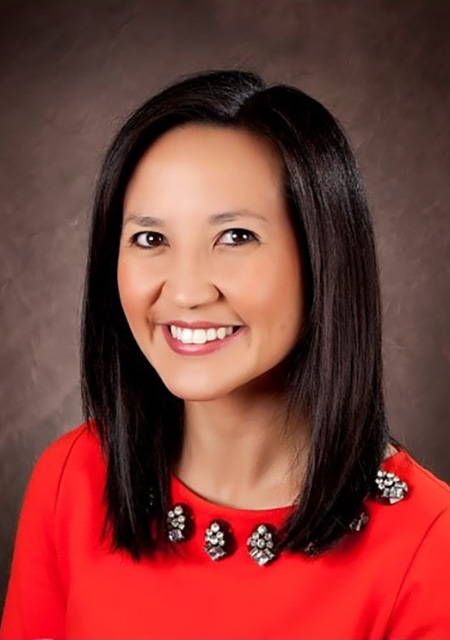
Family Physician, Bacani/McKenney Clinic
Dr. Jennifer Bacani McKenney is a practicing family physician who owns and operates an independent practice in Fredonia, a community of approximately 2500 people in southeast Kansas. She attended the University of Kansas School of Medicine and completed her Family Medicine residency at Via Christi in Wichita, Kansas. She provides outpatient, inpatient, emergency department, surgical, and endoscopic services to her community. Previously, she served as the resident member of the American Academy of Family Physicians and Society of Teachers of Family Medicine boards. She was recently elected secretary of the Kansas Academy of Family Physicians. She founded the Fredonia Area Community Foundation and serves as president of the local school board. She is heavily involved in practice-based improvement through the Aledade Kansas ACO. Her future plans are to continue local, state, and national leadership activities as well as focused local public health and community health improvement initiatives.

Associate Professor, Agricultural Economics & Rural Sociology, College of Agriculture, Communities, and Environment, Kentucky State University
Marcus Bernard is currently an Associate Professor of Agricultural Economics and Rural Sociology at Kentucky State University. Prior to this appointment, he served as the Director of the Rural Training and Research Center for the Federation of Southern Cooperatives/ Land Assistance Fund in Epes, Alabama. He completed his doctoral studies at the University of Kentucky in Rural Sociology and Medical Sociology. His dissertation research focuses on how Black men farming construct their ideas about masculinity and gender roles. Bernard’s dedication to rural development originated in his own rural roots in North Carolina. Throughout his career, he has integrated working for and researching rural-based organizations and communities. As a rural organizer, he has worked with organizations such as the Concerned Citizens of Tillery, Cedar Grove Improvement Association, Operation Spring Plant, the Black Farmers and Agriculturalist Association, the North Carolina Black Farmers Association and the Black Belt Justice Center. Academically, Bernard has built on his relationships with community organizations, small businesses, and farmers to research economic development, health care, and opportunities for youth in agriculture throughout the Black Belt Region. His PhD work centered on the Black Belt, Black farmers, and how marginalized groups build community through resistance and resilience. For his MS in Agricultural Economics, which he received from North Carolina A&T State University, his thesis research focused on access to health care providers and utilization of health care across the 12 state Black Belt Region. Bernard builds on his professional experiences as practitioner and academic in his current role at Kentucky State University by facilitating connections between research and outreach.
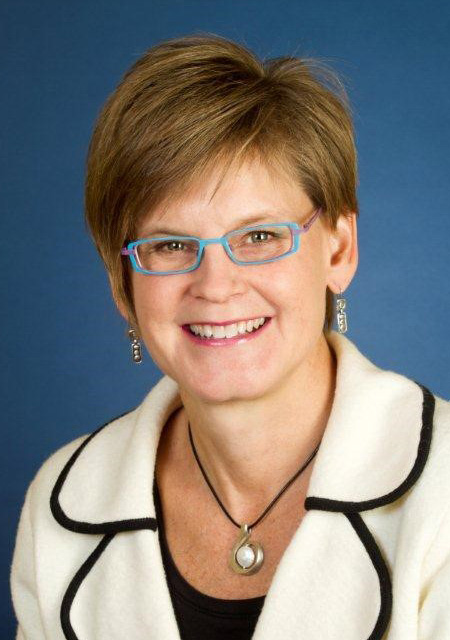
President & CEO, Stratis Health
Dr. Lundblad is President and CEO of Stratis Health, an independent non-profit organization that leads collaboration and innovation in healthcare quality and safety, and serves as a trusted expert in facilitating improvement for people and communities. In this role she works with an independent Board of Directors on governance and leadership to advance a 50-person organization with an annual budget of $16 million.
Dr. Lundblad has expert knowledge of and experience in rural health quality and actively contributes on groundbreaking improvement initiatives. She is currently part of the Rural Health Value project team, to assist rural communities and provider organizations to succeed in a value-driven payment and care delivery environment, and the Rural Quality Improvement Technical Assistance (RQITA) team, to support rural quality measurement and improvement nationally, both funded by the Federal Office of Rural Health Policy. Previously, she served as Project Director for the federally funded Rural Hospital Intervention Support Center to provide technical assistance for Medicare Quality Improvement Organizations (QIO) staff and rural hospitals nationally in the areas of clinical quality and patient safety culture improvement, and as Project Director for a CMS-funded multi-state project to field test and refine new rural relevant quality measures. Dr. Lundblad has a PhD in Education with a focus on organization development from the University of Minnesota. Her dissertation research was “Teamwork and Safety Climates in Small Rural Hospitals.” Dr. Lundblad is a member of the national RUPRI (Rural Policy Research Institute) Health Panel and the University of Minnesota’s Rural Health Research Center Expert Panel, in addition to other national and local board memberships and committee leadership positions.
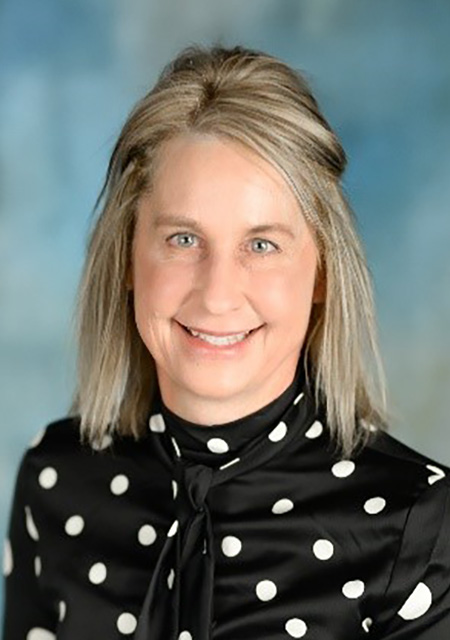
CEO, Lexington Regional Health Center
Since 2010, Leslie Marsh has presided over Lexington Regional Health Center as the Chief Executive Officer through a transformational time. Lexington Regional Health Center (LHRC) is a rural state-of-the-art 54K square-foot, 5-star, 25-bed critical access hospital providing comprehensive patient care. Under her tenure, LHRC expanded access to patient care through the addition of an Urgent/Primary Care clinic and three Rural Health Clinics. Emergency room services were improved by the addition of on-site physician coverage (24 hours/7 days a week) and inpatient care was improved through the implementation of a hospitalist program. Most recently, LRHC completed an overhaul of the Outpatient Services Center. The Outpatient Services Center consists of 16 exam rooms serving as a central location for all visiting specialists. Included in the expansion were three new operating rooms with cutting-edge technology; two endoscopy procedure rooms; nine pre- and post-operation recovery rooms; four post-op recovery rooms; expanded telemedicine capabilities, and a dedicated waiting room and registration for outpatient services.
Leslie’s resolute leadership and commitment to excellence have earned LHRC national recognition. She is the Treasurer for National Hospital Association; sits on the American Hospital Association’s Region 6 Policy Board; and is a member of the National Rural Health Association’s (NHRA) Board of Trustees and the Rural Health Policy Congress, where she serves as the NHRA Hospital and Health Systems Constituency Group Chair. Marsh has received numerous local, regional and national awards. Of note, Leslie received the 2015 Nebraska Rural Health Achievement in Excellence award, the 2017 Nebraska Hospital Association’s Excellence in Service award she was also named one of the 130 Women to Know in Hospital and Health Systems by Becker’s Hospital Review. As a tireless rural health advocate and a constant champion for her team, Leslie has spoken across the nation in a wide variety of venues, including testifying before the House Ways and Means committee about the regulatory burdens that impact rural health organizations’ operations.
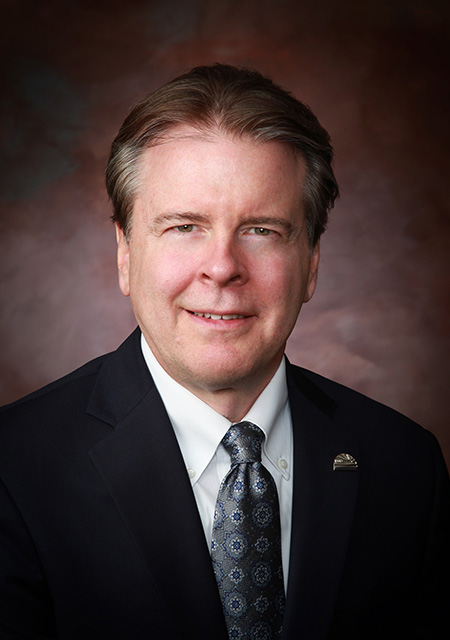
Senior Vice President for Member Services, National Rural Health Association
Brock joined NRHA in 2008. He has administrative responsibility for all areas of member services, including membership, communications and meetings/exhibitions.
He was a rural hospital administrator for more than 21 years and has served on the board of the National Rural Health Association and the regional policy board of the American Hospital Association.
Brock specializes in rural health system development that encompasses population health and the varied payment programs moving rural providers into value based purchasing models. He serves on the CMS Star Rating Technical Expert Panel (TEP), a member of the National Quality Forum’s Measures Application Partnership (MAP) Hospital and Rural Health Workgroup and serves on the Board of Directors of the National Rural Accountable Care Consortium and Healthcare Facilities Accreditation Program (HFAP).
Brock is the 2015 recipient of the Calico Quality Leadership Award of the National Rural Health Resource Center and received the American Society of Healthcare Pharmacists (ASHP) Board of Directors’ Award of Honor for 2018.
Brock earned a master of public health degree in health administration from the University of Oklahoma and is a fellow in the American College of Healthcare Executives.
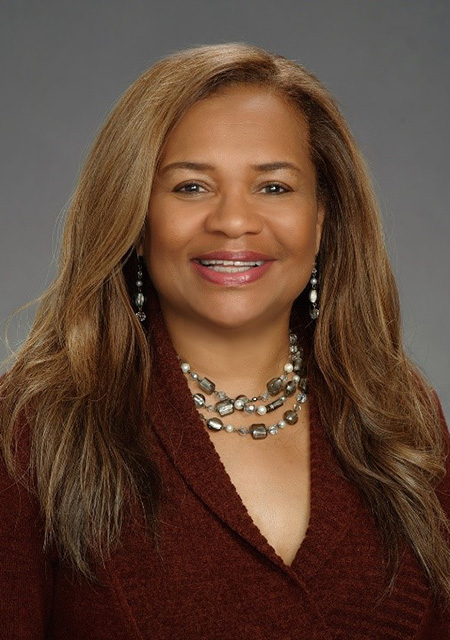
Vice President, Rural Health Care & Governance, California Hospital Association
Peggy Broussard Wheeler serves as Vice President of the Rural Healthcare Center (RHC) at the California Hospital Association (CHA). RHC represents small and rural hospitals and other members of the sponsoring organizations who provide service to rural populations in the State of California and is acknowledged as the primary body for rural healthcare policy on behalf of its members. Ms. Wheeler is responsible for developing, advocating and executing public policies, legislation and regulations on behalf of rural hospitals at the state and national levels.
Ms. Wheeler serves on the National Advisory Committee on Rural Health and Human Services. The committee serves as an independent advisory body to the Department of Health and Human Services on issues related to how the department and its programs serve rural communities. As a committee member, Ms. Wheeler helps to analyze key rural issues under the purview of the Secretary of Health and Human Services and submit recommendations for possible solutions.
In addition, Ms. Wheeler serves as the Issue Manager for Language Access and Governance issues, as well as Hospital-Prison issues.
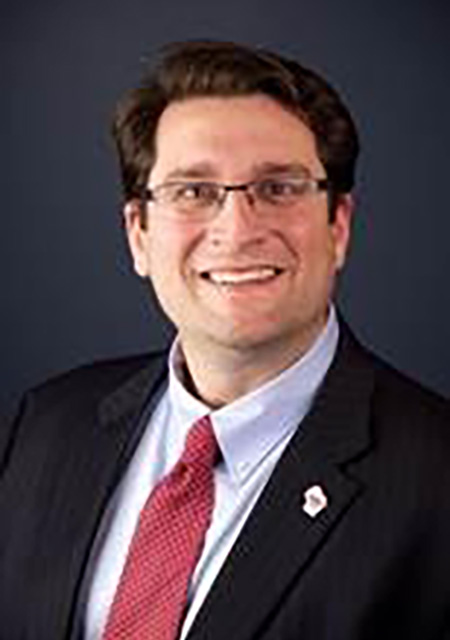
State Director, AARP Wisconsin
Sam has spent the past 17 years with AARP in both advocacy and management roles. He has spent the last 7 years as state director for AARP in Wisconsin and currently serves as an appointed member of the State of Wisconsin Long Term Care Advisory Committee and the State of Wisconsin SeniorCare Prescription Drug Benefit Advisory Committee. Prior to his position in Wisconsin, Sam managed AARP state and federal advocacy campaigns in South Dakota for 10 years and served as an appointed member of the State of South Dakota Advisory Council on Aging. He is a frequent guest speaker in a wide variety of corporate, non-profit, university, and governmental settings, sharing insights on aging-related issues that impact older adult populations in all community settings. For the past six years, Sam has been a regular co-host of “Rural America Live,” a television program on RFD-TV that focuses on health, finances, fraud prevention, and other aging-related concerns for rural families and communities. His educational background includes receiving his Master of Arts degree from The Johns Hopkins University in Government and Bachelor of Arts degrees from the University of Hawaii-Manoa in Political Science and Zoology.


